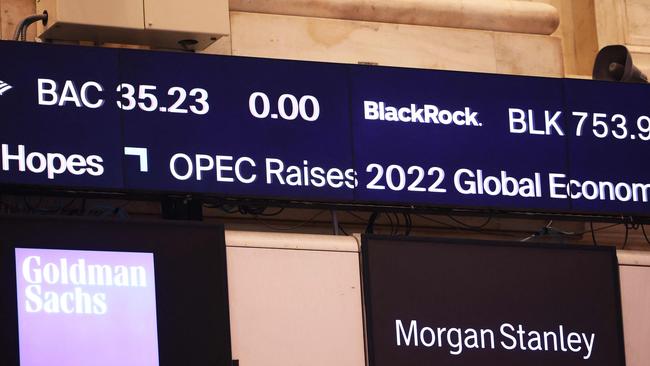Investment banking’s bonus season gets under way and better payments tipped for most
Local investment banking’s most important period of the year has started and Morgan Stanley’s money men and women have learnt what extra funds their pay packets will contain.

The local investment banking industry’s most important period of the year – bonus season – began on Wednesday, as Morgan Stanley’s bankers were informed of their often-lucrative variable pay packets.
Bonus season for the Wall Street investment banks is a key time – not only for the huge payments that can go to top performers, but after the funds are paid it’s also when poaching tends to take place. Or, when those who are unhappy with their bonus payments decamp to another firm or adjacent industry.
Given 2024 was a better year across the Australian sector for deal activity levels and investment banking fees, sources said bonus payments across most areas would be up compared with 2023, although not necessarily substantially so.
Morgan Stanley’s wallet share of investment banking fees in Australia improved in 2024 compared with the previous year, boding well for fatter bonus payments.
Bankers at Morgan Stanley last year worked on such deals as the $24bn purchase of AirTrunk by Blackstone and the Canada Pension Plan Investment Board, and the sale of Anglo American’s portfolio of Australian coal mines.
Globally, Morgan Stanley reports fourth-quarter earnings on January 16, which is the same day as Bank of America and the day after top executives at JPMorgan, Goldman Sachs and Citigroup front investors with results. Jefferies starts the earnings reporting, unveiling its results on January 8 in the US.
While Wall Street banks inform employees of bonuses this month, the payments are usually distributed several weeks later.
At Citigroup in Australia sources said bonus day is expected to be late next week or early the following and Goldman aims to inform employees of their payments around mid January. Over at JPMorgan, envelope day will fall in the week beginning January 20 and Bank of America is set to inform employees of bonuses late this month.
One area whereby bonuses will be brutally lower or non-existent in Australia this year will be for bankers linked to the bungled selldown by China Investment Corporation in property company Goodman Group.
The block trade left Citigroup – which won the mandate – reeling as it was stuck with unwanted Goodman stock, after the trade was poorly priced.
More broadly, Goldman’s compensation ratio is typically seen as a bellwether for pay across investment banking.
The bank’s third-quarter earnings report showed compensation and benefits were up 9 per cent for the nine months ended September 30, compared to the same period in 2023.
Bonuses will vary across bank business lines and depend on how many deals, or the quantum of fees a team or a specific banker helped rake in for their firm. The Asia Pacific region’s performance can often feed into how Australian bankers fare.
London Stock Exchange Group data estimates the Australian market earned $US2.5bn ($4bn) in investment banking fees for 2024, an 11 per cent rise compared to 2023 and the highest annual total since 2022. The Asia Pacific, excluding Japan, was the only region to see a decline in fees for 2024.
New York-based consultants Johnson Associates last year estimated healthy increases in 2024 bonuses among some parts of investment banks, anticipating a jump of 25-35 per cent for bankers working on debt transactions. For equity capital markets, they tipped a 15-25 per cent increase, while for equities sales and trading a rise of 15-20 per cent was expected.
But Johnson Associates expected flat 2024 bonuses for real estate bankers.
European investment banks UBS and Deutsche Bank report their fourth-quarter earnings after the US firms, which means bonus day for their staff is later.
Macquarie Group has a March 31 year end, and its bonus period usually begins in May.




To join the conversation, please log in. Don't have an account? Register
Join the conversation, you are commenting as Logout